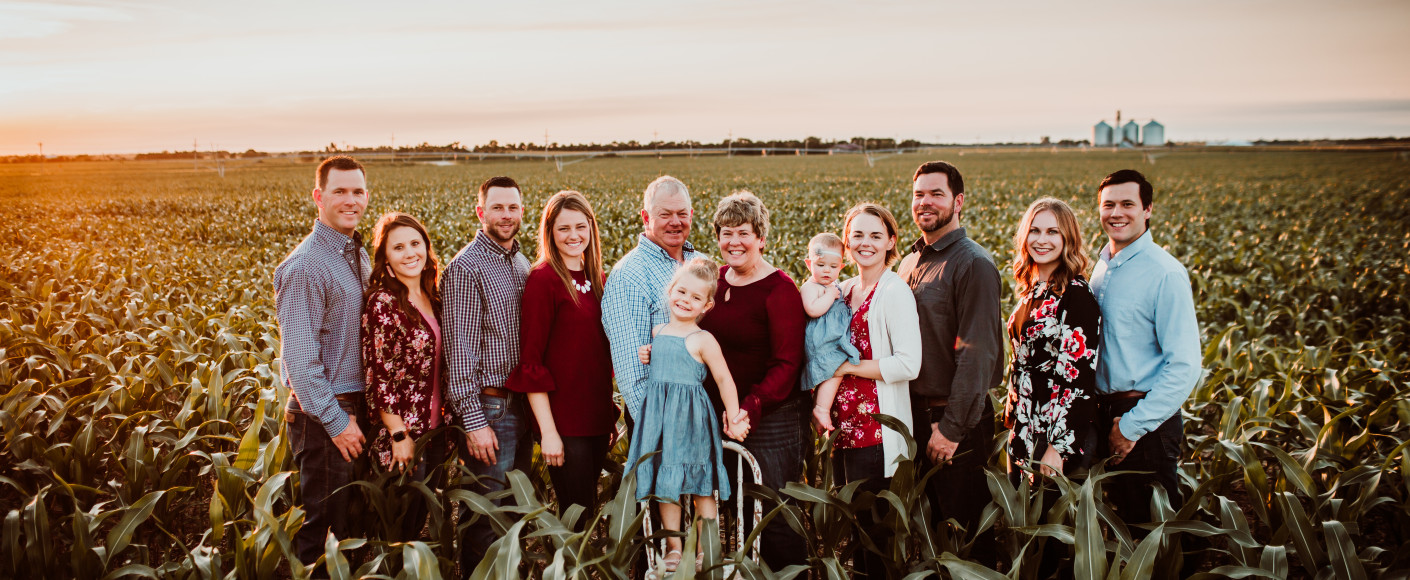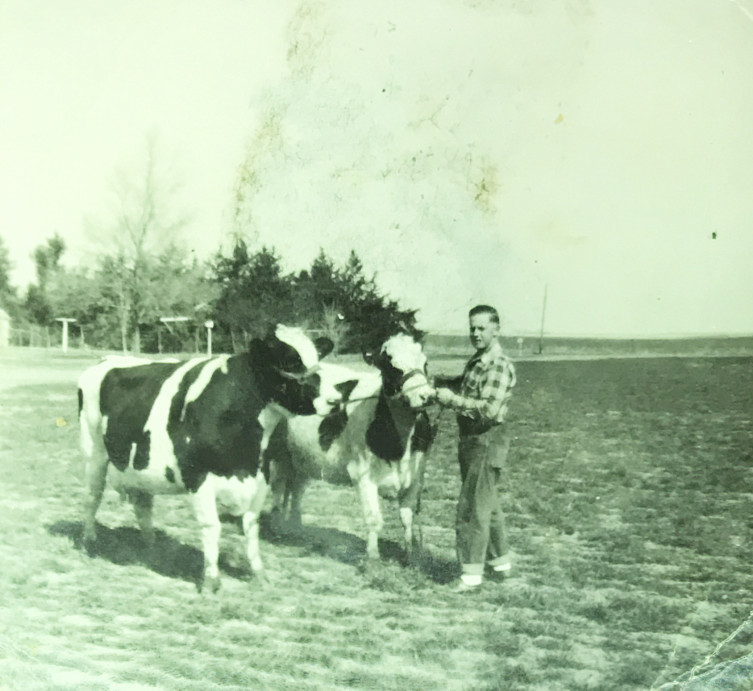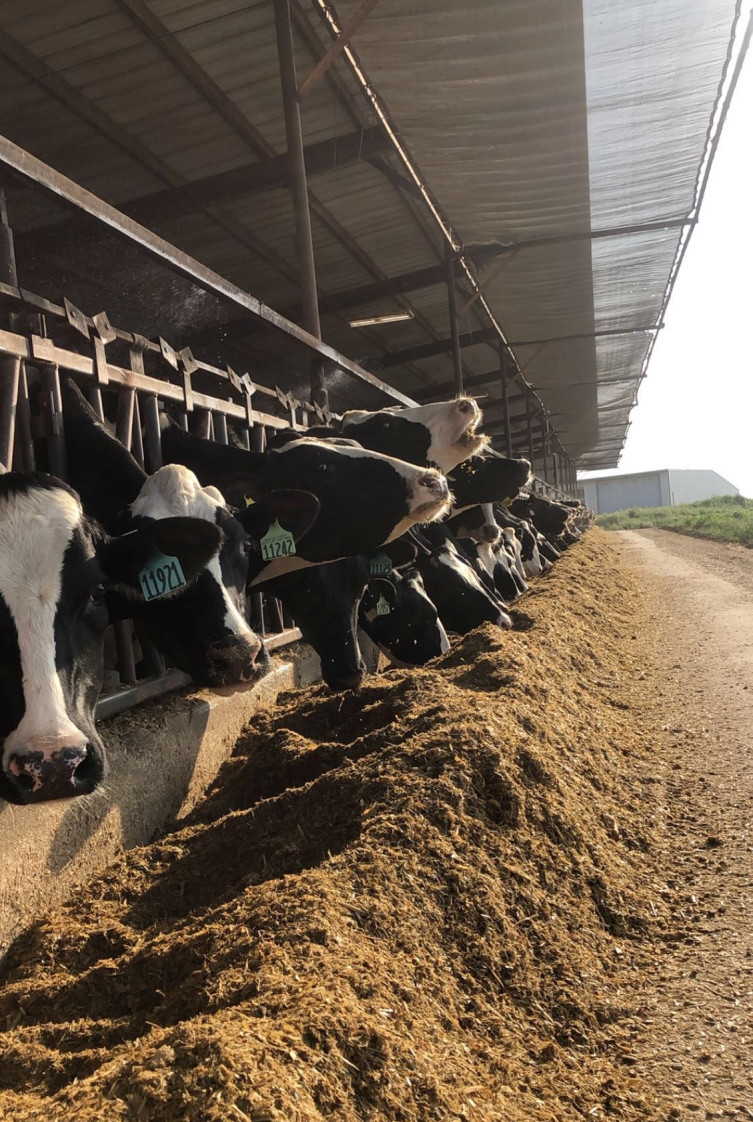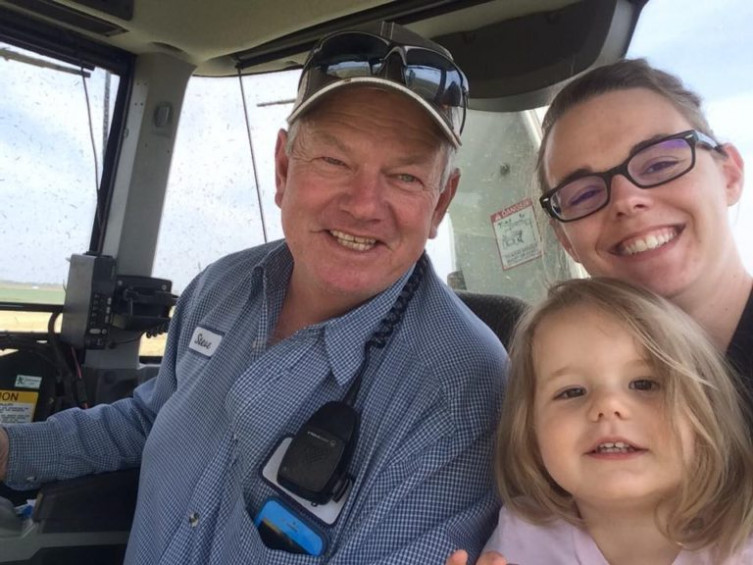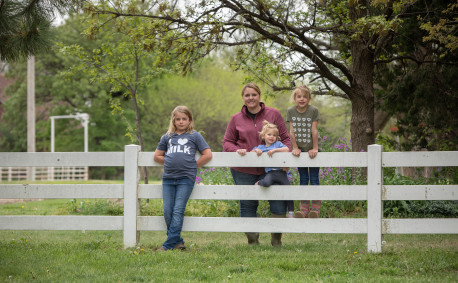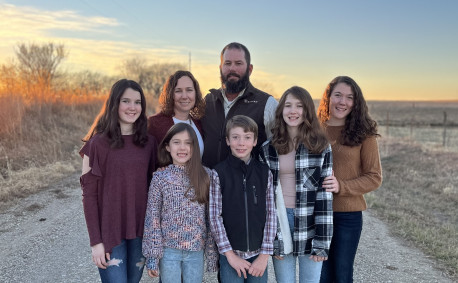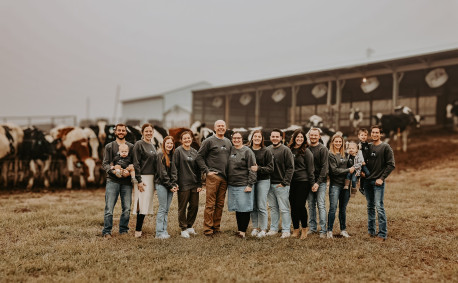Life at Ohlde Dairy Is About Cows, Family and Feed
The silos at Ohlde Dairy stand empty, replaced with covered piles of silage. Silage is a food for cattle that is made from crop plants — every part from stalk to stem — then fermented. It’s a key part of the feed for the nearly 1,300 cows currently milked at the dairy.
This is only one of many changes the dairy has seen over the years as they’ve moved through three generations of family. Well, three and a half generations might be more accurate. The fourth is just getting started helping with chores and riding in the silage chopper — she’s only two, after all.
Ohlde Dairy was started by Bob and Norma Ohlde in North Central Kansas in 1955. One of their five children, Steve, joined the operation with his wife Cindi 25 years later.
"My dad started our dairy farm in 1955, and I was able to work alongside him all my life and help him build our herd," Steve said. "I now have sons who are involved in the family farm with me and they are raising their children on the farm as well. I am very grateful for the opportunities we have been blessed with in our family farm and I am looking forward to watching it continue with my sons and their families."
Currently three of their four sons, Justin and his wife Becky, Levi and Kyler are also partners. Justin’s daughter Reagan is the fourth generation.
The Ohldes like to share their story and farming practices with people outside of the agricultural community.
“Too often controversial topics like GMOs or antibiotics in milk get lumped together into a big category and cast in an almost evil light,” Justin said. “We need to explain the role of these tools to consumers to help them understand the real story behind how we produce food.“
For example, many consumers look for grass-fed cattle products. But, as Justin pointed out, corn is a grass because the entire stalk is used in the feed, meaning the animals are being fed the grass along with the grain.
The Ohldes use corn as a key part of what they feed their cows.
“Our ration is corn heavy. We grow all our corn with the intention of harvesting it as silage,” Justin said.
They focus a lot of energy on how to grow good feed for their cattle. They look for corn varieties that will have a high yield of bushels per acre and traits to enhance the quality of the feed. Those traits include softer kernels with more starch, the complete opposite of most corn grown in the Midwest.
They also use a fleet of choppers and silage trucks to ensure the silage is harvested at peak quality.
“Timing is critical to having the highest quality feed for the cows, which in turn maximizes milk production,” Justin said.
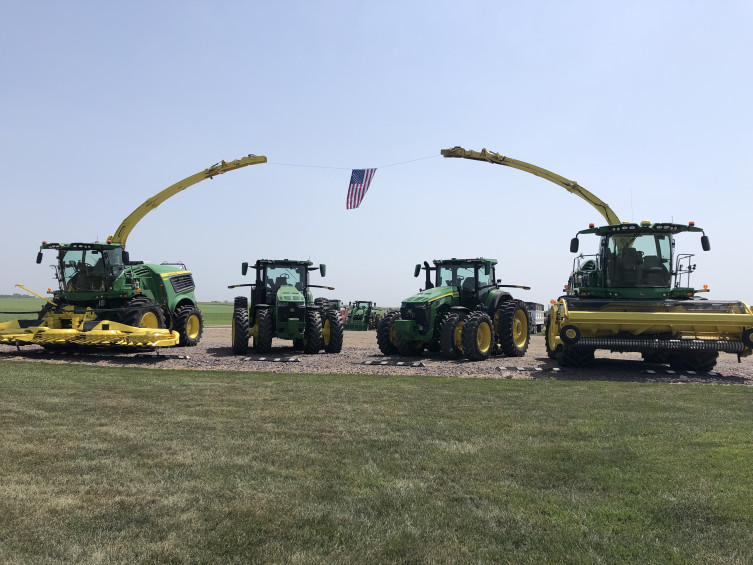 Sustainability is also a hot topic among consumers and many people don’t know the pains farmers take to run their operations efficiently and responsibly. For example, cows are great recyclers. They eat feed from the field, then produce manure that helps fertilize the field to continue the cycle.
Sustainability is also a hot topic among consumers and many people don’t know the pains farmers take to run their operations efficiently and responsibly. For example, cows are great recyclers. They eat feed from the field, then produce manure that helps fertilize the field to continue the cycle.
Steve said one of his favorite parts about working on a dairy farm, aside from working with family and growing to become a better caretaker of the land, is the advancement of resources to improve agriculture — "the ever changing technology and research allowing us to continually work at growing better and more efficient crops, and working to create the most perfect environment for our cows to be comfortable and productive."
The Ohldes run a no-till farm, meaning they don’t churn the soil, which helps maintain its structure. They also use cover crops to help maximize the soil’s moisture. Although their commitment to no-till farming requires the use of herbicides and pesticides, the environmental benefits of reduced erosion, runoff and lower fuel usage balance that out.
Farming is a business and a lifestyle choice. Families often enjoy the wide-open spaces, interacting with nature and working together. Farming with multiple generations offers a balance of experience and new ideas. Ohlde Dairy is working hard to make sure that same opportunity is there for the fourth generation and beyond.
"Farming is our livelihood and way of life. It is the backbone to everything else in the world," Steve said. "I am creating/growing products to be used as food to feed humans (and animals) along with producing the material for numerous other everyday essentials. Without agriculture, who would feed the world? To me, that is a pretty amazing and extremely important task, and that is what makes me so passionate about what our family does."
To learn more about Ohlde Dairy, you can schedule a tour of their farm, visit during their annual open house in early summer or follow them on Facebook.
A version of this article originally appeared on Kansas Corn. It has been edited for our website and expanded to include additional comments from Steve. Read the original article by Deb Ohlde, Central Kansas Corn Crew Representative.

